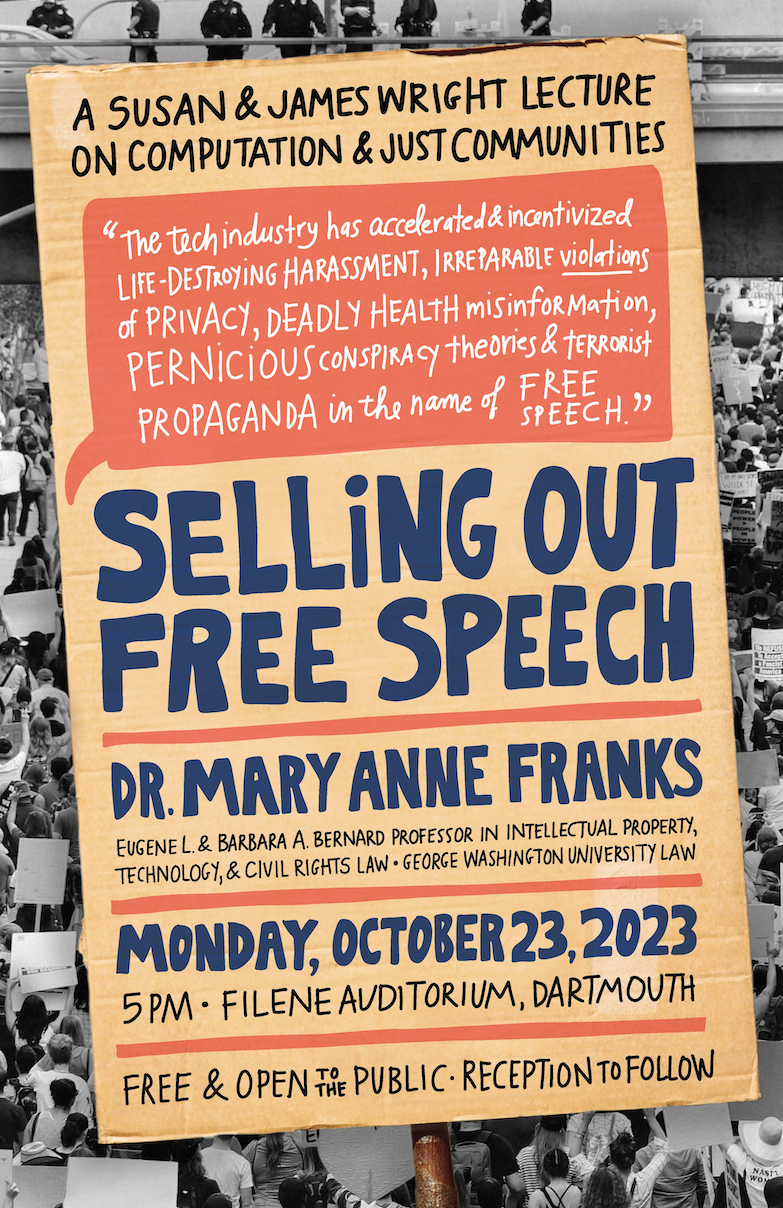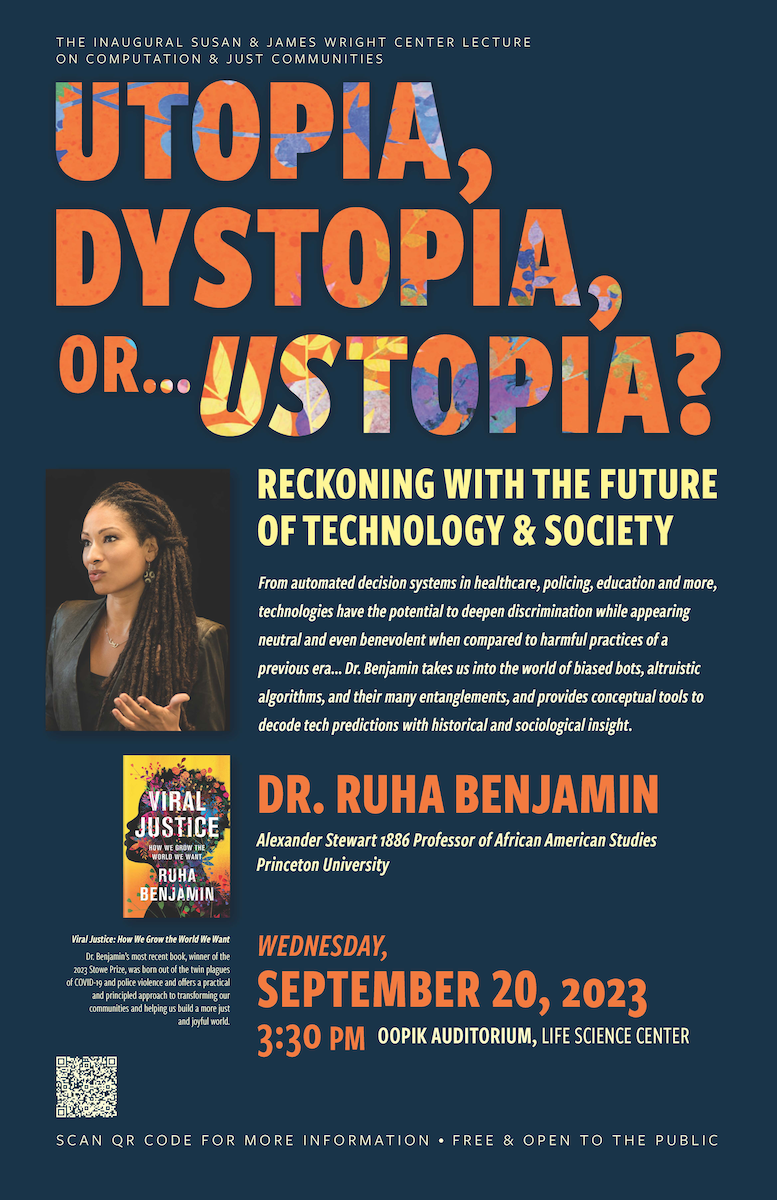Dr. Mary Anne Franks
"Selling out Free Speech"
October 23, 2023, 5pm in person at the Filene Auditorium, Moore Hall, Dartmouth College.
OR Livestreamed on Dartmouth Youtube
Wright Center Hosts Law Professor Mary Anne Franks for Campus Lecture - The Dartmouth
Free and open to the public with reception to follow
Abstract and Bio below
Franks

The American conception of free speech is reductionist, consumerist, and antidemocratic. It is fixated on what I call "reckless speech," the hallmarks of which are insincerity, sycophancy, and cowardice. Reckless speakers distance themselves from the views they express; their speech flatters or legitimates those in power; and they are undeterred by the risk of harm to others created by their speech. While the First Amendment in theory is neutral with regard to the subject matter of the speech it protects, in practice it has been deployed most visibly and effectively in the service of powerful antidemocratic interests: misogyny, racism, corporate profits, and religious zealotry. This reductionist and reactionary interpretation of free speech is not contained to the United States, but is rapidly taking hold around the world in part through the tremendous influence of the Internet and related technologies. No industry has benefited more from the sublimation of civil libertarianism into economic libertarianism than the tech industry, which sells the promise of free speech to billions of people around the world in order to surveil, exploit, and manipulate them for profit. The tech industry has accelerated and incentivized life-destroying harassment, irreparable violations of privacy, deadly health misinformation, pernicious conspiracy theories, and terrorist propaganda in the name of free speech.
BIO
Dr. Mary Anne Franks is the Eugene L. and Barbara A. Bernard Professor in Intellectual Property, Technology, and Civil Rights Law at the George Washington University Law School. She is an internationally recognized expert on the intersection of civil rights, free speech, and technology. Her other areas of expertise include family law, criminal law, criminal procedure, First Amendment law, and Second Amendment law.
Dr. Franks is also the President and Legislative & Tech Policy Director of the Cyber Civil Rights Initiative, a nonprofit organization dedicated to combating online abuse and discrimination. In 2013, she drafted the first model criminal statute on nonconsensual pornography (sometimes referred to as "revenge porn"), which has served as the template for multiple state laws and for pending federal legislation on the issue. She served as the reporter for the Uniform Law Commission's 2018 Uniform Civil Remedies for the Unauthorized Disclosure of Intimate Images Act and frequently advises state and federal legislators on various forms of technology-facilitated abuse. Dr. Franks also advises several major technology platforms on privacy, free expression, and safety issues. She has been an Affiliate Fellow of the Yale Law School Information Society Project since 2019.
Dr. Franks is the author of the award-winning book, The Cult of the Constitution: Our Deadly Devotion to Guns and Free Speech (Stanford Press, 2019). She was awarded a Knight Foundation grant to support research for her second book, Fearless Speech, which is expected in 2024. Her scholarship has also appeared in the Harvard Law Review, the California Law Review, and UCLA Law Review, among others.
Prior to joining the GW faculty, Dr. Franks was the Michael R. Klein Distinguished Scholar Chair at the University of Miami School of Law and an Affiliated Faculty member of the University of Miami Department of Philosophy. She previously taught at the University of Chicago Law School as a Bigelow Fellow and Lecturer in Law and at Harvard University as a lecturer in social studies and philosophy. She holds a JD from Harvard Law School as well as a doctorate and a master's degree from Oxford University, where she studied as a Rhodes Scholar. She was named a member of the American Law Institute in October 2018 and is a member of the District of Columbia Bar.
